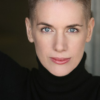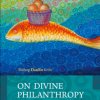Commemorating the Serbian National Holiday (June 28 - Vidovdan or St. Vitus Day) and the 150th Anniversary of Nikola Tesla's birth, the Serbian American community presents this bouquet of Serbian immigrants who blossomed in America over the last two centuries, contributing to her efflorescence in all realms of human endeavor. During the 19th and 20th centuries, Serbs joined the waves of immigration to the New World in laying the very foundations upon which America continues to grow and prosper.
The earliest documented Serb in this country was George Fisher Shagich, who, after participating in the liberation of Serbia from the oppressive Islamic Ottoman yoke, immigrated to Philadelphia in 1813.
In addition to a large number of nameless pioneers who worked in various mines, on roads and railroads, transforming and gradually civilizing the wilderness of a relatively still empty continent, stand out the names of two globally famous Serbian American scientists: Nikola Tesla (1856-1943) and Michael Pupin (1854-1935), without whose great inventions and discoveries wide-spread electrification and long distance communication, along with the rest of our highly industrialized way of life, would be impossible.
Many Serbian Americans valiantly served in the U.S. military forces during two world, and later wars. For their gallantry and valor some of them received our country's highest military decoration - the Congressional Medal of Honor: Louis Cukela (awarded both the Navy and Army Medals of Honor), Mitchell Paige, Lance Sijan, and Mele "Mel" Vojvodich (the Legion of Merit). A few reached the highest ranks, such as Admiral Steve Mandarich (laid to rest at Arlington National Cemetery).
In the educational field of the early second half of the 20th century it is sufficient to name professors Milorad Draskovich and Wayne Vucinich of Stanford University, Michael B. Petrovich of the University of Wisconsin, and Alex N. Dragnich of Vanderbilt University. In the political life of that time we find: State Senators Rose Ann Vuich (first woman elected to her State's Senate), George Zenovich and John Begovich of California; U.S. Congresswoman Helen Delich-Bentley; somewhat later U.S. Senator George Voinovich of Ohio, and most recently Illinois Governor Rod Blagojevich and Illinois' U.S. Representative Melissa Bean (Milica Luburic). In the field of entertainment we encounter the Oscar-winning actor Karl Malden (Mladen Sekulovich), Brad Dexter (Boris Milanovich), best known for his role as Harry Luck in The Magnificent Seven; film director Peter Bogdanovich as well as actresses Lollita Davidovich, Catherine Oxenberg and Milla Jovovich.
Fleeing from both Fascism and Communism, numerous highly skilled Serbian professionals quickly integrated into the triumphant US society, contributing greatly to America's overall growth and development. These included: the great poetdiplomat Jovan Duck; the Pulitzer Prize winners Charles Simic and Walt Bogdanich and the Oscar-winning screenwriter, playwright and novelist Steve Tesich.
Seven Serbian American scientists and engineers participated in the Apollo 11 Project: Slavoljub Vujic, Petar Gajic, Danilo Bojic, Milojko Vucelic, Milisav Surbatovic, Petar Galovic and David Vuich (director of public relations).
Among the leading Serbian American business people must be mentioned: Alex Macheskee (publisher of the Cleveland Plain Dealer), Milan Puskar (founder of generic pharmaceutical company Mylan Laboratories Inc.), Milan Mandaric (owner of the English soccer club Portsmouth), William G. Salatich (president of Gillette North America), Micheal Djordjevich (President of Bank of Southeast Europe International), and Desa T. Wakeman (former President, U. S. Lease Financing San Francisco).
Among popular American athletes are: Pete Maravich (Basketball Hall of Fame); Bill Vukovich (International Motorsports Hall of Fame) and 14 current NBA basketball stars, including Vlade Divac and Pedja Stojakovic.
Some of today's most important Serbian American researchers and educators, among hundreds of other outstanding scholars, are professors Dragoslav Siljak of SCU (contributor to the NASA Saturn V and Skylab projects), Petar Kokotovich of UCSB (winner of the prestigious IEEE education leadership medal), Dimitrije Djordjevic (history) of UCSB, Pasko Rakic (Yale University School of Medicine), Miodrag Radulovacki (College of Medicine, University of Illinois, Chicago), Branislav Vidic (Georgetown University Medical Center), Slobodan I. Macura (Mayo Clinic Medical College of Medicine), Dragan Svrakic (School of Medicine, Washington University), Radmila J. Gorup of Columbia University (linguistics and literary criticism), and Slobodan Curcic (Byzantine Studies, Princeton University). Attracted by America's religious and political freedoms and economic opportunities, the most recent Serbian immigrants, most of them proud graduates of the University of Belgrade, Serbia, fill the ranks of our Silicon Valley young computer scientists and engineers, as well as the fields of medicine, biology, electronics, social sciences and humanities.
Restricted in scope by the nature of the national gathering for which it was prepared, this commemorative booklet is significant because it provides valuable insight into the careers of a considerable number of notable American Serbs whose honorable contributions to this great country should not be overlooked.
George Vid Tomashevich, Ph.D.
Emeritus Professor of Anthropology
State University of New York, College of Buffalo




